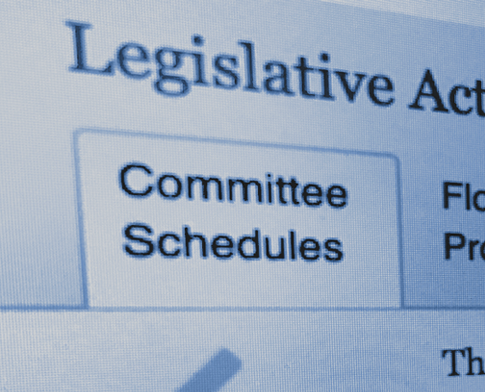Health Update (December 14)
| Tax Package
On Monday, Ways and Means Chairman Kevin Brady (R-TX) released the latest version of a tax bill, a fourth quarter effort to pass a tax package before the end of the year. The clock is ticking for House Republicans to pass legislation while they are still in the majority, and it does not seem likely that Rep. Brady will be successful in getting this bill to the finish line. Any measure passed by the House will need the support of 9 Democrats in the Senate and Senator Ron Wyden (D-OR), ranking member of the Finance Committee, isn’t budging. “It’s clear he is not serious at all about negotiating a real bipartisan package,” Senator Wyden said. The tax package would cost about $80 billion. It would delay the Cadillac tax on health insurance plans until 2023, delay the medical device tax until 2025, and delay the health insurance tax until 2022. Other provisions in the bill relate to nonprofit involvement in politics and 529 college savings plans for unborn children.[1] The text of the legislation can be read here.
Electronic Health Records This week, the Energy and Commerce Health Subcommittee held its third hearing on the 21st Century Cures Act. Members held a discussion with Dr. Donald Rucker, National Coordinator for Health Information Technology at the Department of Health and Human Services (HHS), to get updates on the state of Electronic Health Records and patient privacy. Members expressed widespread frustration that a pending rule regarding the prohibition on information blocking has not yet been released. Patient privacy was a consistent concern for members; Dr. Rucker assured members that HIPAA does a fine job protecting patient privacy, and that his office does not want to inhibit innovation in the health sector. He also indicated that the final rule on information blocking is coming soon. Dr. Rucker said that he expects a booming health record app market to evolve, and highlighted a need for greater interoperability around mental health and addiction treatment. Capitol Hill Consulting Group covered the hearing, and a full readout of the discussion can be read by clicking here.
On a related note, the HHS Office for Civil Rights (OCR) issued a request for information (RFI) regarding changes to HIPAA. Specifically, the request asks interested parties to “identify provisions that may impede the transformation to value-based health care or that limit or discourage coordinated care among individuals and covered entities without meaningfully contributing to the protection of the privacy or security of individuals’ protected health information.”[2] The public comment period is open through Tuesday, February 12th, 2019.
Backdoor Spending The House Oversight and Government Reform Intergovernmental Affairs Subcommittee held a hearing this week on “Examining ‘Backdoor Spending’ by Federal Agencies.” A recent Government Accountability Office (GAO) report indicates that the amount of spending authority and permanent appropriations has grown by 88%, from $1.2 trillion in 1994 to $3.2 trillion in 2015.[3] While Chairman Gary Palmer (R-AL) was critical of the increase, witnesses from the GAO and other government watchdog groups explained that these mandatory appropriations are carried out with the full authority of Congress, and do not pose constitutional problems.[4] Ranking Member Jamie Raskin (D-MD) offered a different perspective on backdoor spending, a term he believes is misleading. In his opening remarks he said, “While it is true that programs like Medicare, Medicaid, and Social Security are not subject to the annual appropriations process, these programs are funded by a formula Congress authorizes and has the power to amend.”[5] The full GAO report can be read here.
Affordable Care Act Open Enrollment 2019 In many places across the country, tomorrow (December 15th) is the last day to sign up for health insurance on HealthCare.gov. This week, the Centers for Medicare and Medicaid (CMS) released figures from week six of open enrollment for 2019. As has been the case in weeks past, enrollment totals for 2019 are lagging behind enrollment from 2018. In last year’s sixth week of open enrollment, there were 388,984 new sign-ups.[6] This year, 294,700 new consumers signed up for plans, for a cumulative total of 1,106,963 new plan selections.[7] More data on week six can be found here.
References
[1] Richard Rubin. “House Republicans Recast Tax Bill, Seeking New Momentum.” Wall Street Journal, 10 Dec 2018. https://www.wsj.com/articles/house-republicans-recast-tax-bill-seeking-new-momentum-1544482472 [2] “Request for Information on Modifying HIPAA Rules to Improve Coordinated Care.” Office for Civil Rights, 14 Dec 2018. https://s3.amazonaws.com/public-inspection.federalregister.gov/2018-27162.pdf [3] Kris Nguyen and Julia Matta. “Government-Wide Inventory of Accounts with Spending Authority and Permanent Appropriations, Fiscal Years 1995 to 2015.” Government Accountability Office, 11 Dec 2018. https://www.gao.gov/assets/700/695894.pdf [4] Jessie Bur. “Money Congress can’t touch almost doubles.” Federal Times, 12 Dec 2018. https://www.federaltimes.com/federal-oversight/congress/2018/12/11/backdoor-payments-increased-88-percent-in-20-years/ [5] Jamie Raskin. “Opening Statement.” U.S. House of Representatives, 11 Dec 2018. https://democrats-oversight.house.gov/sites/democrats.oversight.house.gov/files/Raksino0pening%2012.11.2018.pdf [6] “Weekly Enrollment Snapshot: Week Six.” Centers for Medicare and Medicaid Services, 13 Dec 2017. https://www.cms.gov/newsroom/fact-sheets/weekly-enrollment-snapshot-week-six [7] “Weekly Enrollment Snapshot: Week 6.” Centers for Medicare and Medicaid Services, 12 Dec 2018. https://www.cms.gov/newsroom/fact-sheets/weekly-enrollment-snapshot-week-6 |
HOUSE.GOV
The Week Ahead
For the main events of the next week and more, go straight to the key events on the house.gov website.
SENATE.GOV
The Week Ahead
For the main events of the next week and more, go straight to the key events on the senate.gov website.


